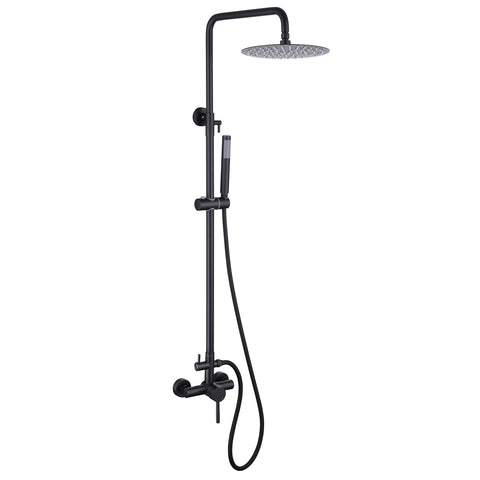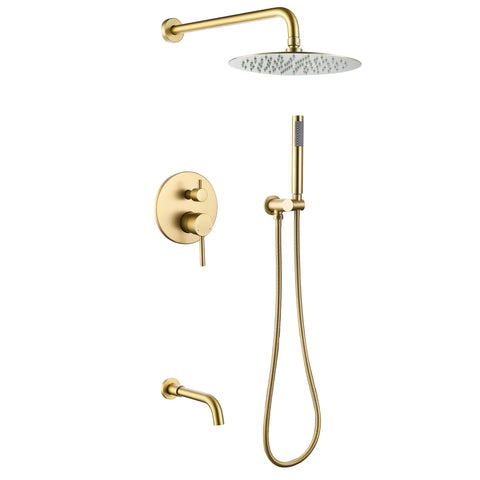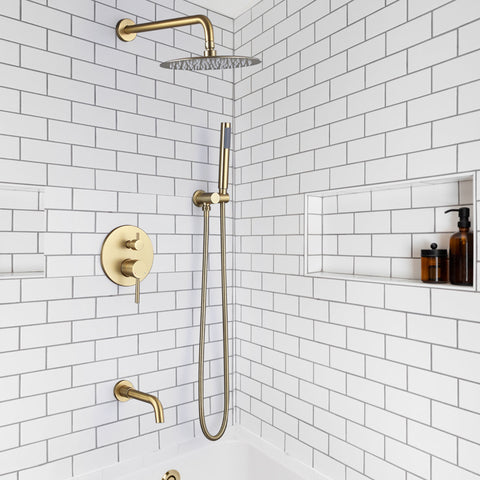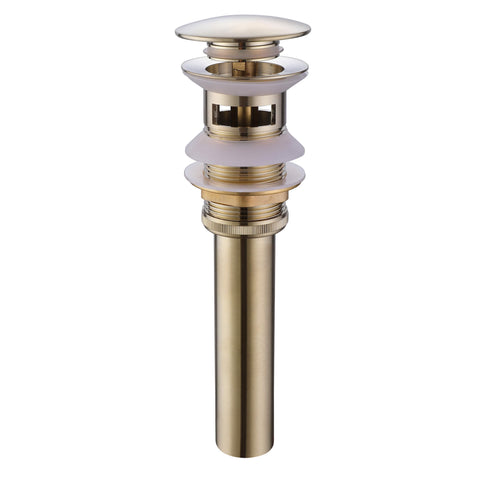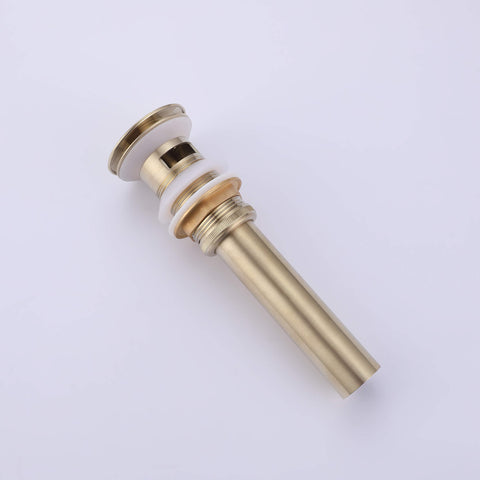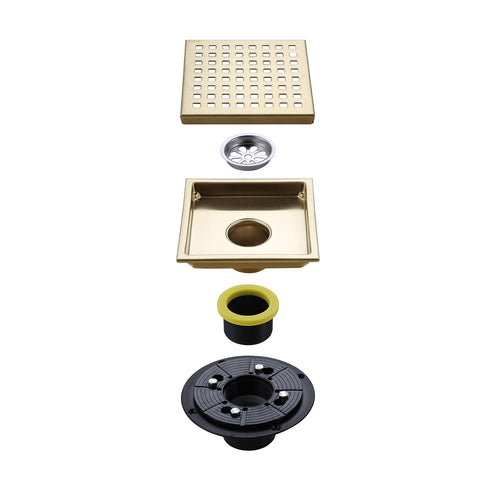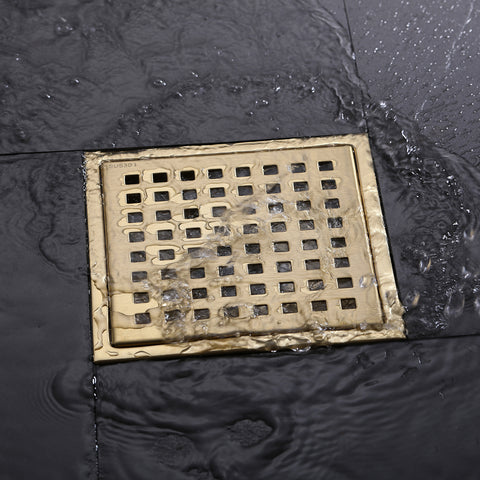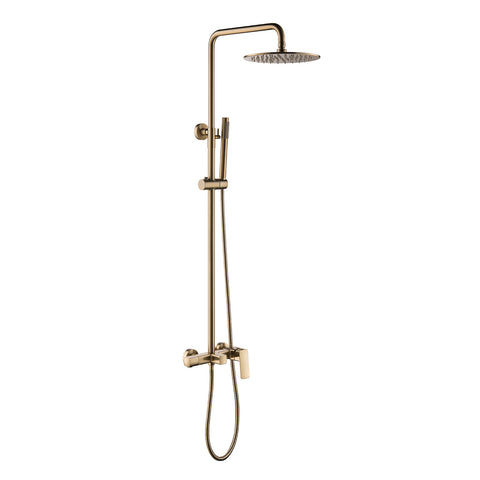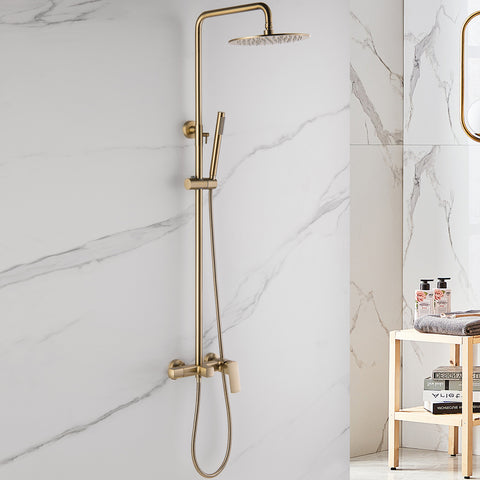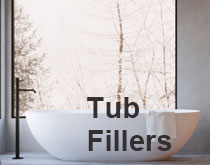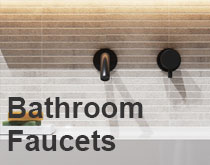Will Stainless Steel Outdoor Shower Rust?
What makes stainless steel rust? To answer this, we must first understand what stainless steel actually is.
Stainless steel is a high-quality alloy that contains a high proportion of chromium in addition to iron. This is the secret: oxygen in the air reacts more readily with chromium than with iron to form a protective layer of chromium oxide. This invisible layer prevents the iron from oxidizing, effectively stopping the formation of the familiar reddish-brown rust.
The key to rust prevention is keeping this chromium oxide layer intact. If it's compromised, oxygen can reach the iron and cause real rust—which cannot be removed once formed.
Compared to chrome, stainless steel is more resistant to seawater, lime, salt, and chlorine. It’s also antibacterial, durable, polishable, and guaranteed to be lead-free—making it a safe and long-lasting choice for outdoor showers.
Tip: Regular maintenance of your garden shower will keep the chromium oxide layer intact so you can enjoy your outdoor shower for years to come.
Care Instructions
- Remove visible dirt using a soft, damp cloth.
- Shake the stainless steel cleaner well before use, then apply it to a damp cloth.
- Wipe along the grain of the stainless steel to avoid scratching.
- Buff with a dry, clean cloth to remove residue.
- To prevent limescale or mineral buildup, wipe the shower with fresh water and a soft cloth regularly—weekly in coastal or salty air environments, monthly in inland areas.
- Do not use steel wool or chlorine-based cleaners.
Why Does My Stainless Shower Look Rusty?
Many customers report rust-colored stains on their outdoor showers. In most cases, this isn’t actual rust—it’s surface discoloration from airborne iron particles settling on the stainless steel.
These deposits, often appearing as an orange-brown film, can roughen the surface slightly but don't compromise the material itself. This phenomenon is called flash rust, and it's typically removable with a damp cloth and mild detergent or stainless steel cleaner.
Common Causes of Flash Rust
- Proximity to dense vegetation or soil-rich environments.
- Pool environments with high lead or chlorine levels.
- Storing the shower near untreated steel or chlorine tablets during winter.
